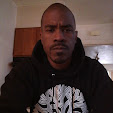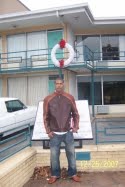Dual Indentity
The struggle and consequence
Of double consciousness
A dual identity
We've been fooled
by My tribes enemies
and seen as fools
for five centuries
sure my injuries
Are bandaged
As collateral damage
All in the fusion
of a more perfect union
They say
It's embarrassin
Since Kin's
Not american
Dreamin
And he's tweakin
For not seekin
The grace
Of the States
Assimilate
Or adapt
You choose
This or that
Or they obliterate
You off the map
You just read a poem by KiN Camell (google
that) now what in the heavens is a double
consciousness ? In the words of W E Du Bois “a
double consciousness is a peculiar sense of always
looking at oneself through the eyes of others,
measuring one's soul by the tape of the world”.
Since the inception of motion pictures melanated people have been portrayed as unattractive and uncivilized (“Birth of A Nation” 1915)
. The power of imagery is used to propagate White Supremacy and
Melanated inferiority. This propaganda fuels the notion
that “White is right” and all other “minorities” must
assimilate or remain uncivilized further provoking a
double consciousness in the existence of melanated
people .Self hatred is a direct result of double
consciousness specifically when we Melanted people
view beauty with a white (non melanated) lense. Some
abstract examples of self hatred include negative
sentiments of Melanated culture or denying melanted
ancestry while some concrete examples include skin
bleaching cosmetic surgery.
Beyond Melanated people walking a tightrope
between being a “Negro” and being a “American” there
lies a battle of being accepted as a human being ! In
the 21st century phrases such as ; he's a beast,he's
got some dog in him, he's a workhorse or he's a stud
are regarded as compliments bestowed upon stellar
athletes. Ironically these same phrases were used in
the Antebellum South to describe strong Melanted
slaves therefore not only has the U.S labeled
melanated people as non american but also as sub
human (⅗ compromise). We can spend hours
analyzing the parallels between plantation owners and
sports team owners however we have to save that
discussion for a later date.
Let’s explore the origins of the double
consciousness which Harvard-educated activist,
sociologist, and historian W.E. Dubois defined what he
called the double consciousness of being African and
American. "One ever feels his twoness," he wrote in
1903, "An American, a Negro, two warring souls, two
thoughts, two unreconciled strivings, two warring
ideals, and one dark body whose dogged strength
alone keeps it from being torn asunder,".
According to W. E. B. Du Bois “an individual whose
identity is divided into several facets”, is the epitome of
a double consciousness. Du Bois explains ” as a
theoretical tool, double consciousness reveals the
psycho-social divisions in American society and allows
for a full understanding of those divisions”.
The concept of a Double Consciousness was first
used in an Atlantic Monthly article titled “Strivings of
the Negro People” in 1897. 6 years later the concept
was revised and further defined in W.E.B Du Bois’s
book “Of Our Spiritual Strivings” The Souls of Black
Folk.
In 2006, Chicago Tribune columnist Clarence Page
wrote an article addressing how Melanated people in
the U.S still poses a double consciousness, even in
the "post racial" Obama era. Mr Page goes on to acknowledge that “Black (Melanated) middle class Americans complain sometimes of being passed over by a taxi or receiving bad service in a restaurant and wondering whether it's because of our race but when we compare such problems to the days when we did not have to wonder, when we knew discrimination came because of our race, we have made some progress”. Mr page concluded his article on a optimistic note with proclaiming “our double consciousness is still a problem in the 21st century, it can also be an
opportunity for us to launch ourselves into a new century and a larger world”.
Works Cited
Du Bois, W. E. B. (1903). The Souls of Black Folk. New York: Dover Publications
Copyright © 2006 NPR. All rights reserved. Visit our website terms of use and permissions pages at www.npr.org for further information.



